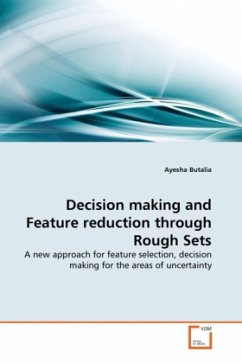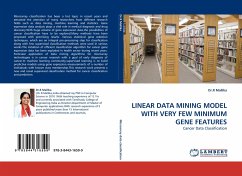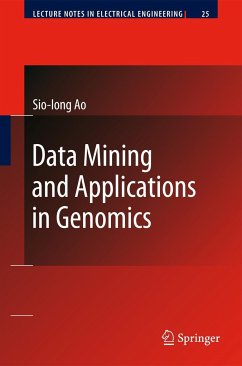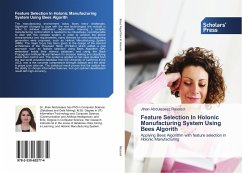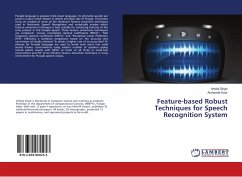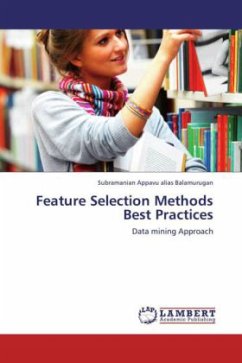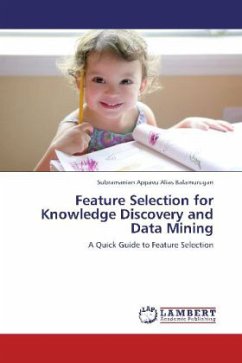
Feature Filtering Techniques for Biased Microarray Sample Sets
Some Thoughts and Solutions
Versandkostenfrei!
Versandfertig in 6-10 Tagen
32,99 €
inkl. MwSt.

PAYBACK Punkte
16 °P sammeln!
Microarray expression data contain expression levels of a large number of genes and have been used in many scientific research and clinical studies. Due to its high dimensionalities, selecting a small number of genes has shown to be beneficial for many tasks such as building prediction models for a particular disease or gene regulatory network discovery. Traditional gene selection methods, however, fail to take the class distribution into the selection process. In Biomedical science, it is very common to have microarray expression data severely biased having very small number of diseased sampl...
Microarray expression data contain expression levels
of a large number of genes and have been used in
many scientific research and clinical studies. Due
to its high dimensionalities, selecting a small
number of genes has shown to be beneficial for many
tasks such as building prediction models for a
particular disease or gene regulatory network
discovery. Traditional gene selection methods,
however, fail to take the class distribution into
the selection process. In Biomedical science, it is
very common to have microarray expression data
severely biased having very small number of diseased
samples. These biased sample sets require special
attention from researchers for identification of
genes responsible for a particular disease. In this
work, we propose three feature filtering techniques,
Higher Weight ReliefF, ReliefF with Differential
Minority Repeat and ReliefF with Balanced Minority
Repeat to identify genes responsible for fatal
diseases from biased microarray expression data. Our
solutions will help Bioinformatics, Computer Science
and Biomedical Research groups to filter potentially
hazardous genes in an efficient way.
of a large number of genes and have been used in
many scientific research and clinical studies. Due
to its high dimensionalities, selecting a small
number of genes has shown to be beneficial for many
tasks such as building prediction models for a
particular disease or gene regulatory network
discovery. Traditional gene selection methods,
however, fail to take the class distribution into
the selection process. In Biomedical science, it is
very common to have microarray expression data
severely biased having very small number of diseased
samples. These biased sample sets require special
attention from researchers for identification of
genes responsible for a particular disease. In this
work, we propose three feature filtering techniques,
Higher Weight ReliefF, ReliefF with Differential
Minority Repeat and ReliefF with Balanced Minority
Repeat to identify genes responsible for fatal
diseases from biased microarray expression data. Our
solutions will help Bioinformatics, Computer Science
and Biomedical Research groups to filter potentially
hazardous genes in an efficient way.




